Normally, the body has protective measures in place to cool you down when you get too hot, according to the Cleveland Clinic .
For example, sweat glands produce sweat that evaporates from the skin, lowering your body temperature before it can reach dangerous levels. But sometimes the weather is too hot and humid, or your body produces too much internal heat (from a vigorous workout, for example) and this natural cooling system is overwhelmed.
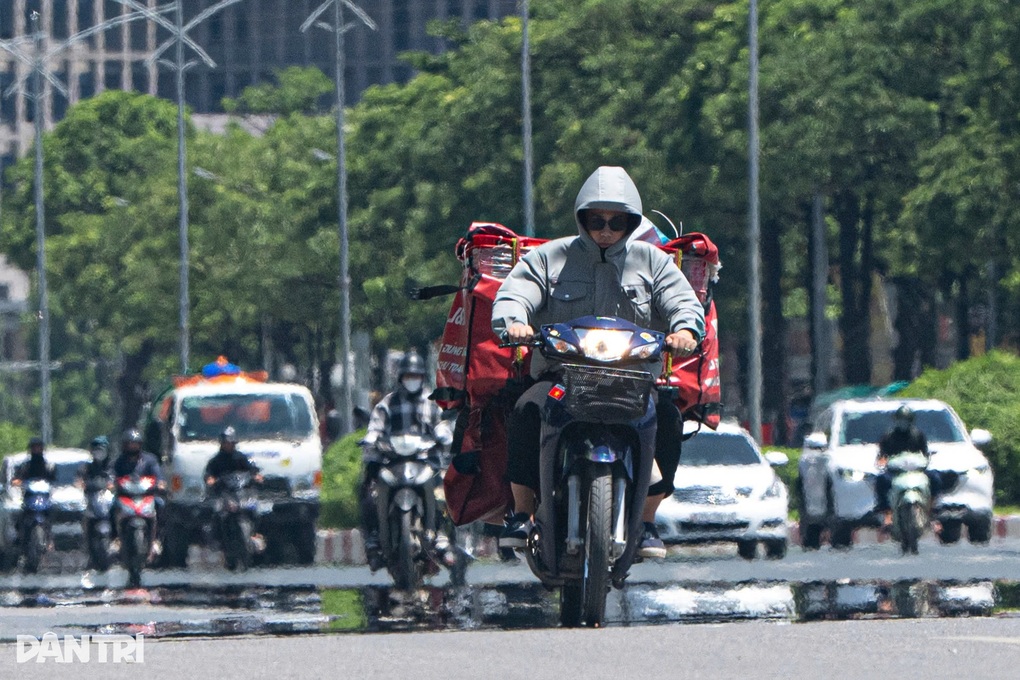
Hanoi and some northern provinces are experiencing peak heat days (Photo: MQ).
Imagine trying to cool your entire house with just a fan on a hot day, it won’t work. There’s too much heat buildup and not enough cooling from the fan. The same goes for heat-related illnesses. Your body gets overwhelmed by the heat and needs extra help to cool itself.
Heat-related illnesses range from mild to severe. In mild cases, you may experience only heat rash and cramps. This condition usually resolves with rest or home treatment.
However, moderate to severe cases, such as heat exhaustion and heatstroke, require prompt medical attention to avoid serious complications.
High temperatures and prolonged heat can have a significant impact on people's health. In particular, it can cause dehydration, exhaustion, and heat stroke.
Almost every year, the Emergency Department of Bach Mai Hospital (Hanoi) receives cases of people fainting or going into shock while walking on the hot street and being brought to the emergency room by local people. These cases are often caused by working for long periods in hot environments or walking under the sun for long periods of time.
4 types of heat-related illnesses
Four common illnesses caused by heat, from mild to severe, include:
- Heat rash: This is a group of small, itchy bumps on the skin that develop when sweat is trapped under the skin. Usually, you can control heat rash at home by keeping the skin dry and cool and using anti-itch creams.
- Muscle cramps (also called exercise-related muscle cramps): These are muscle cramps in the legs, arms, abdomen, or any other location. They often occur when you exert yourself in hot weather and sweat a lot.
Heat cramps are a mild form of heat-related illness, and you usually have a normal or slightly elevated body temperature. However, these cramps are a warning that the illness may get worse if you don't take steps to cool down.
- Heat exhaustion: This is a mild form of heat-related illness that can quickly turn into heatstroke if left untreated. It occurs when you lose too much water and/or salt, usually when you exert yourself in hot weather.
The internal body temperature is elevated but below 40 degrees Celsius. Symptoms include dizziness, nausea, vomiting and headache.
- Heatstroke: This is a life-threatening condition. It occurs when your body temperature rises very high, usually above 40 degrees Celsius.
Heat stroke can occur from physical activity in hot weather (exertional heatstroke) or simply from being in a hot environment for too long.
The first sign of heat stroke is sweating as the body reacts to release heat. The temperature gradually increases until the body cannot release heat, causing the patient to become exhausted and faint.
Additionally, the patient may experience headache, dizziness and lightheadedness; red, hot and dry skin; muscle weakness or cramps; nausea and vomiting; rapid heart rate; rapid, shallow breathing.
If more severe, the patient will have behavioral changes such as confusion, disorientation or staggering, even convulsions, loss of consciousness, coma...
First aid and early active treatment are also very important to limit damage to organs.
How to prevent heat stroke
People should limit going outdoors as much as possible between 11am and 3pm. Depending on the nature and specifics of each person's work, they need different sun protection, including wide-brimmed hats, long-sleeved shirts, and sunglasses to shield and reduce the effects of heat.
Remember to wear light, loose clothing, such as cotton, to sweat easily. When going out, dress warmly and avoid wearing thick, dark-colored clothing because it will absorb heat easily.
It is especially important to drink enough water. Because a lot of water is lost through sweat, if you do not drink enough water, your body temperature will increase, easily causing heat stroke. In hot weather like today, you need to drink 2-3 liters of water per day.
Note that you should not drink ice water, cold water or carbonated soft drinks because it will only make your body more dehydrated. It is best to choose filtered water, fruit juice, pure green vegetable juice...
Morning work should start early and end early, afternoon work should start late and end late. While working, if you feel too hot, tired or uncomfortable, you should take a break and regularly drink salty drinks (such as oresol, fruit juice, boiled vegetable water with added salt, mineral water...).
Source: https://dantri.com.vn/suc-khoe/dau-hieu-co-the-dang-cau-cuu-vi-nang-nong-ban-khong-nen-bo-qua-20250805085139015.htm



![[Photo] Hanoi morning of October 1: Prolonged flooding, people wade to work](https://vphoto.vietnam.vn/thumb/1200x675/vietnam/resource/IMAGE/2025/10/1/189be28938e3493fa26b2938efa2059e)








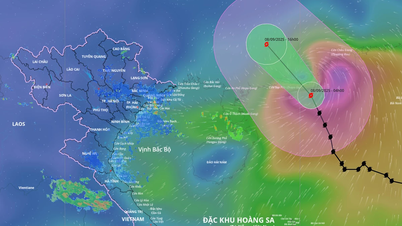

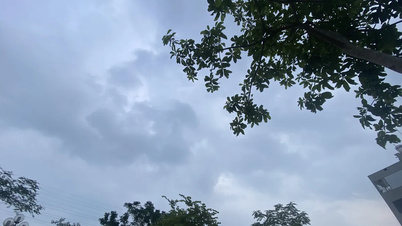





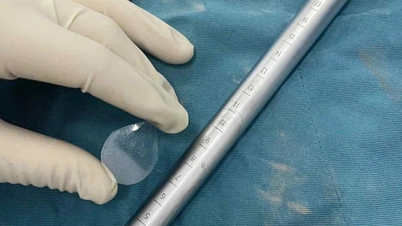
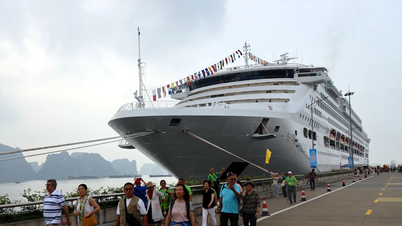

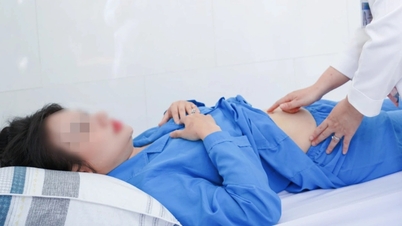
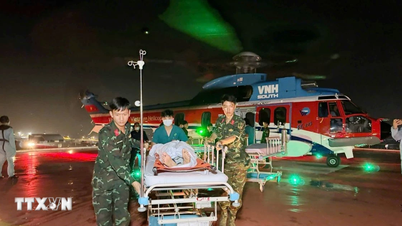
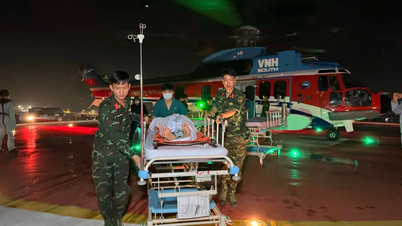












![[Photo] Panorama of the cable-stayed bridge, the final bottleneck of the Ben Luc-Long Thanh expressway](https://vphoto.vietnam.vn/thumb/1200x675/vietnam/resource/IMAGE/2025/9/30/391fdf21025541d6b2f092e49a17243f)




































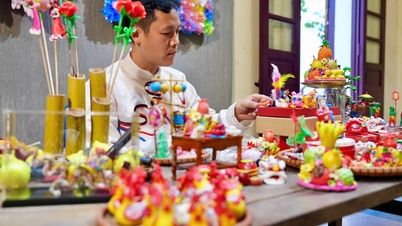

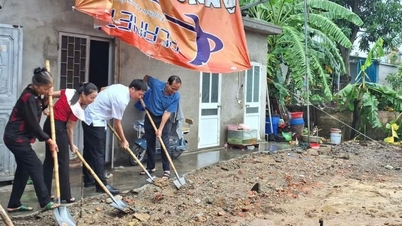

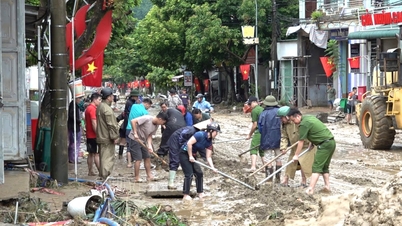



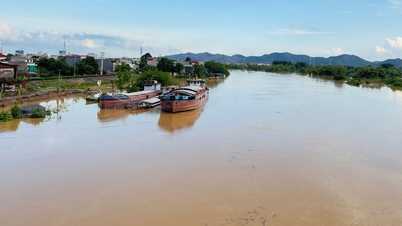














Comment (0)